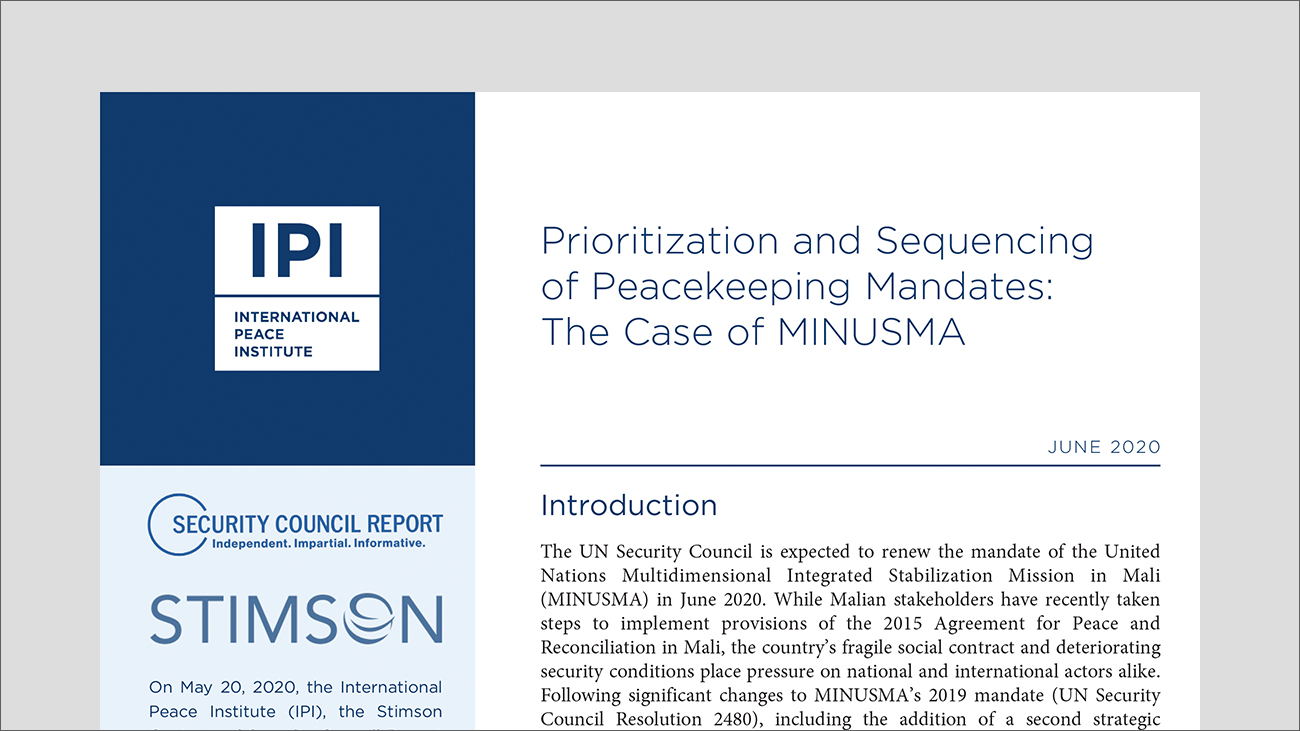
The UN Security Council is expected to renew the mandate of the United Nations Multidimensional Integrated Stabilization Mission in Mali (MINUSMA) in June 2020. While Malian stakeholders have recently taken steps to implement provisions of the 2015 Agreement for Peace and Reconciliation in Mali, the country’s fragile social contract and deteriorating security conditions place pressure on national and international actors alike. Following significant changes to MINUSMA’s 2019 mandate, including the addition of a second strategic priority, the upcoming mandate renewal negotiations offer council members the opportunity to take stock of progress on the UN’s stabilization efforts in Mali and refine its strategic engagement with the country.
In this context, the International Peace Institute (IPI), the Stimson Center, and Security Council Report organized a workshop on May 20, 2020, to discuss the mandate and political strategy of MINUSMA. This workshop provided a forum for member states, UN stakeholders, and outside experts to share their assessment of the situation in the country. The discussion was intended to help the Security Council make more informed decisions with respect to the strategic orientation, prioritization, and sequencing of the mission’s mandate and actions on the ground. Participants reflected on opportunities and challenges for consolidating political reforms and implementing key provisions of the peace agreement. The discussions underscored the centrality of MINUSMA’s support to the protection of civilians, promotion of human rights and accountability, and strengthening of state institutions.
Workshop participants largely agreed that MINUSMA’s current mandate remains relevant but pointed to two pressing issues that should be resolved. First, the mandate could better define and operationalize MINUSMA’s role in supporting the G5 Joint Sahel Force. Second, MINUSMA requires the budget and resources necessary to become more agile.









